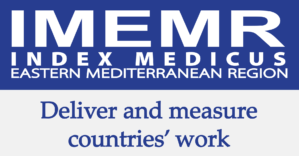Response of People with Type 1 Diabetes for Follow Up
DOI:
https://doi.org/10.53685/jshmdc.v1i1.38Abstract
Diabetes is becoming a global epidemic. Type1 diabetes (T1DM) accounts for 3-5% of all the diabetics. As T1DM
is diagnosed in childhood and adolescence, it is associated with more complications because of longer life span of
individuals with this condition. The main objective of the study was to find out attitudes of people with type 1
diabetes especially with regards to their follow up. A cross-sectional study was planned and a total of 97 people with
type 1 diabetes were included for a period of one year. To analyze the data SPSS 20.0 version was used. Results
showed that out of 97 people, 48 (49.5%) were male and 49 (50.5%) were female. The mean age of total type 1
diabetics were 17.03±6.54 years. Mean glycated hemoglobin (HbA1c) was 10.59±3.09. The results revealed that
45% of people showed positive attitude and 55% showed negative behavior towards follow-up. It was concluded
that overall follow up of people with type 1 diabetes was poor. It was observed that they wanted a complete cure and
this contribute to missed follow up.
References
Colagiuri R, Brown J, Dain K. Global diabetes plan 2011–2021. International Diabetes Federation. Brussels; 2011.
Federation ID. IDF Diabetes Atlas update poster. International Diabetes Federation. 2014.
Loghmani E. Diabetes Mellitus: Type 1 And Type 2, Chapter 14, Stang J, Story M (Eds) Guidelines for Adolescent Nutrition Services; 2005.
Gillespie KM. Type 1 diabetes: pathogenesis and prevention. Cmaj. 2006; 175(2): 165-170. DOI: https://doi.org/10.1503/cmaj.060244
Nathan DM, Kuenen J, Borg R, Zheng H, Schoenfeld D, Heine RJ. Translating the A1C assay into estimated average glucose values. Diabetes care. 2008; 31(8): 1473-1478. DOI: https://doi.org/10.2337/dc08-0545
Mbanya JC, Motala AA, Sobngwi E, Assah FK, Enoru ST. Diabetes in sub-Saharan Africa. The Lancet. 2010; 375(9733): 2254-2266. DOI: https://doi.org/10.1016/S0140-6736(10)60550-8
Imtiaz S, Ullah H, Rasool MF, Hashmat F, Saleem M, Khan N. Assessment of compliance of diabetic patients at Nishtar Hospital Multan, Pakistan. Gomal J Med Sci. 2014; 12(2): 84-8.
Khan AR, Lateef ZN, Al Aithan MA, Bu-Khamseen MA, Al Ibrahim I, Khan SA. Factors contributing to non-compliance among diabetics attending primary health centers in the Al Hasa district of Saudi Arabia. Journal of Family and Community Medicine. 2012; 19(1): 26-32. DOI: https://doi.org/10.4103/2230-8229.94008
Shrivastava SR, Shrivastava PS, Ramasamy J. Role of self-care in management of diabetes mellitus. Journal of Diabetes & Metabolic Disorders. 2013; 12(1): 14. DOI: https://doi.org/10.1186/2251-6581-12-14
DCCT Research Group. Factors in the development of diabetic neuropathy: baseline analysis of neuropathy in the feasibility phase of Diabetes Control and Complications Trial (DCCT). Diabetes. 1988; 37(4): 476-481. DOI: https://doi.org/10.2337/diabetes.37.4.476
Evers IM, de Valk HW, Visser GH. Risk of complications of pregnancy in women with type 1 diabetes: a nationwide prospective study in the Netherlands. Bmj. 2004;328(7445): 915. DOI: https://doi.org/10.1136/bmj.38043.583160.EE
Downloads
Published
How to Cite
Issue
Section
License
Copyright (c) 2019 Sarfraz Ahmad Khan, Faiza Kamal, Rozina Arshad, Bilal Bin Younis, Rashid Ahmed

This work is licensed under a Creative Commons Attribution-NonCommercial 4.0 International License.
You are free to:
- Share — copy and redistribute the material in any medium or format
- Adapt — remix, transform, and build upon the material
- The licensor cannot revoke these freedoms as long as you follow the license terms.
Under the following terms:
-
Attribution — You must give appropriate credit, provide a link to the license, and indicate if changes were made. You may do so in any reasonable manner, but not in any way that suggests the licensor endorses you or your use.
-
Non Commercial — You may not use the material for commercial purposes.
-
No additional restrictions — You may not apply legal terms or technological measures that legally restrict others from doing anything the license permits.





















